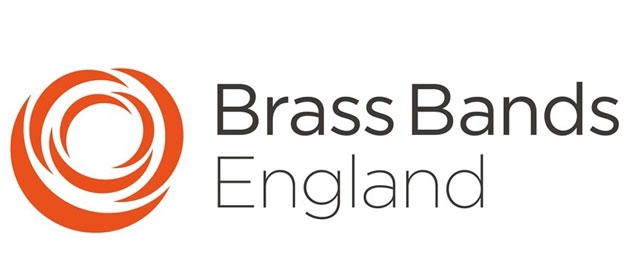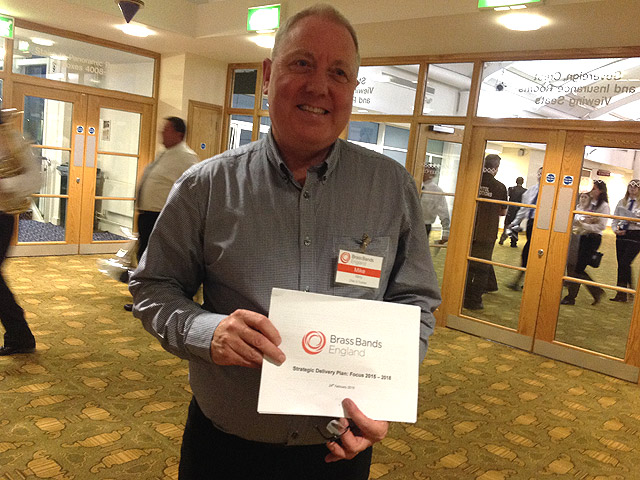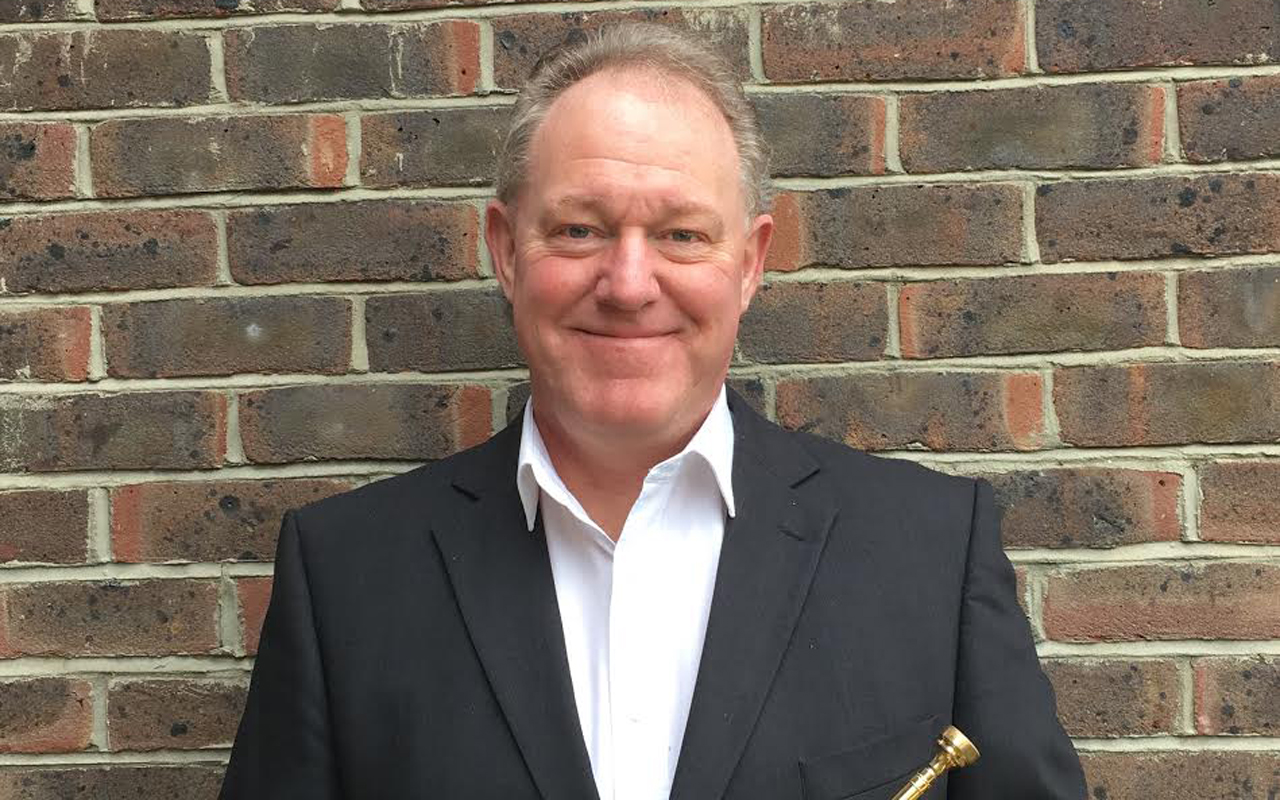
There can be no more promises of jam tomorrow from Brass Bands England.
In April they will be flush with public money to help fund their advertised vision, mission and goals.
No more excuses or management speak obfuscation, no more multi-coloured ‘Post-it’ notes , outdated SWAT analysis or PowerPoint images of a metaphorical elephant standing on a cliff edge to hide a lack of verifiable results.
The time has finally come for the organisation to act on its new ‘vision’ statement of increasing ‘...participation, engagement and appreciation of brass bands by promoting the cultural, social, economic, educational, health and well-being benefits of our community’.
Grand words - £207,000 per year’s worth in fact. That’s £828,000 of taxpayer’s cash over the four year period 2018/19 to 2021/2022.
Visionless leadership
BBE’s most recent successful Arts Council England funding bid was based on a slickly put together application that held the promise of a bright, sustainable future for banding from Penzance to Durham and all stops and all levels in-between. It would emerge from the rubble of years of visionless leadership that had seen it come close to irrelevance as well as financial implosion.
Now that time has arrived - and not a moment too soon: That jam must now be spooned into hungry banding mouths.
Cut through the tiresome management-speak and in other words, five years had been spent on a bread and water diet of financial public grant support. One that surprisingly amounted to a rather substantial £550,000 or more.
Mike Kilroy’s Chairman’s Report at the recent AGM, said as much. The period 2013 - 2017 had been spent in various stages of ‘recovery’, ‘resilience and sustainability’, ‘relevance’ and ‘research and development’.
Cut through the tiresome management-speak and in other words, five years had been spent on a bread and water diet of financial public grant support. One that surprisingly amounted to a rather substantial £550,000 or more.
BBE did have to restructure itself, but it wasn't quite in the same league as modernising ICI was it now?
Money in the bank
It also perhaps explains why BBE now has over £100,000 in its coffers - as it certainly hasn’t come from increased membership fees. In 2013 there was under £10,000 in the bank. In 2015 it was around £34,000 and by 2016 it had swelled to over £73,000.
Was all this down to the opaque sentence in the Chairman’s Report that said membership was up 40% since 2013? (the date of his appointment)

Mike Kilroy has led BBE since 2013
No. Even some cursory research into the BBE’s own figures told you that.
BBE reported in 2010 that it had 244 members, but now admits that it has ‘around 200 bands’. Membership subscriptions amounted to £16,820 in 2014, £15,430 (2015), £15,371 (2016) and £16,239 in the year ending 31st March 2017.
The reality is that they haven’t exactly been wearing out shoe leather around the country spending their yearly Arts Council England grant money - money awarded to them to help English banding, not buffer up the savings account for a rainy day.
Talked a good game
In this respect Mike Kilroy has a lot to answer for.
He has talked a good game for BBE and worked exceptionally hard to gain extra grant funding. The National Youth Championships have been revived - but they aren’t a core part of their funded remit (and there is no mention of contesting in its new vision, goals or ambition).
However, five years into his tenure and the day to day results haven’t exactly been anything to shout about. Buzz word platitudes to describe 'activity' are meaningless unless backed by hard outcome figures.
And it has always been those that have been lacking. Now we know why.
If the same approach was carried on come April, BBE may just as well give each member band £1,000 to help promote their ‘well being’ and still pocket something to spare for the bank balance.
They could also carry on failing to update their website with any relevant news of what they had actually achieved in the past 12 months or more.
If the same approach was carried on come April, BBE may just as well give each member band £1,000 to help promote their ‘well being’ and still pocket something to spare for the bank balance.
This cannot continue - and in their defence, Mike Kilroy and his Interim CEO Andrew Coe know it and admit it. They will now be scrutinised for every penny they get and every penny they must spend.
Membership
For instance, as membership subscriptions account for less than 10% of total BBE revenue, the new CEO will have to live up to what Mike Kilroy called ‘a leading salary for a charity of its size’ (not yet revealed) to convince the Arts Council that its money won’t simply be sucked dry in unsustainable and unwarranted wages from April.

Arts Council England will be funding BBE to the tune of £207,000 a year from April 2018
Even the most generously minded accountant at Arts Council England won’t be happy if BBE can’t show a significant diminishing reliance on grant hand outs in the years to come to pay its way. It has to start raising funds both from those it wishes to help as well as those it wishes to work in partnership with.
Not happy
And they won’t be too happy either if it hasn’t sorted out the mess that is the Norman Jones Trust, which in the past has been raided like a child’s piggy-bank to stop BBE going belly-up. At present it seems to be in non compliant and potentially illegal disarray.
At the AGM nobody knew how much was in the fund, who the trustees were, and until recently, even where the cheque book was. It is in a mess.

No mention was made of parliamentary representation
The same applies to the All Party Parliamentary Group, which in 2016 was hailed as being, ‘...an excellent opportunity to broaden understanding and appreciation of brass bands’, but which is now as seemingly moribund as Theresa May’s hopes of representing the UK in the Eurovision Song Contest.
There was no mention of it in the Chairman’s Report, no mention of any plans for it to be revived either.
Come April, they cannot afford any more cock-ups, broken promises or institutional ineptitude.
Then there is the issue of ‘redundancies’ and ‘non-disclosure agreements’, which according to BBE were not undertaken with departing members of staff who no longer had a role to play in the new era.
Instead, ‘financial settlements’ and ‘industry standard agreements’ were made, although how these were calculated and employed was not disclosed. How does BBE explain that to the Arts Council if it asks where the money came from?
All these and more (the missed opportunity to apply for Arts Council ‘Catalyst Funding’ to help with strategic planning and governance issues for instance?) have been the challenges that have been faced, endured and in part made for themselves (questions remain over the appointment and removal of trustees) in the past few years.
Come April, they cannot afford any more cock-ups, broken promises or institutional ineptitude.
Good news
The good news is that BBE has found an Interim Chief Executive Officer in Andrew Coe (with a welcome return of Nigel Morgan as Treasurer), who, as was shown with his insightful presentation at the recent RNCM Brass Band Festival, is a man who certainly understands the hard-nosed financial realities of life.

Plain speaker: Andrew Coe
His clear thinking and admirable lack of pretentiousness bodes well for the future, if he is the person chosen (by open interview you hope) to fill the new CEO role.
The plain speaking plans to reduce the reliance on Arts Council Funding and to increase membership with tough, but realistic target setting (no ‘band in every postcode’ cloud cuckoo land wish lists) was straight forward and crystal clear.
The plain speaking plans to reduce the reliance on Arts Council Funding and to increase membership with tough, but realistic target setting (no ‘band in every postcode’ cloud cuckoo land wish lists) was straight forward and crystal clear.
So too his commitment to well-supported, hard working staff and volunteers, detailed research, partnership links (perhaps with the likes of UniBrass to give the National Youth Championships an exciting new future) and industry co-operation.
Add in an understanding of the use of commercial nous, proactive reporting and an emphasis on participation, engagement and inclusion to achieve things and April 2018 takes on a realistic sheen of long term sustainability and development.
You can only hope that he isn’t just promising more jam for tomorrows that never come.
Iwan Fox













